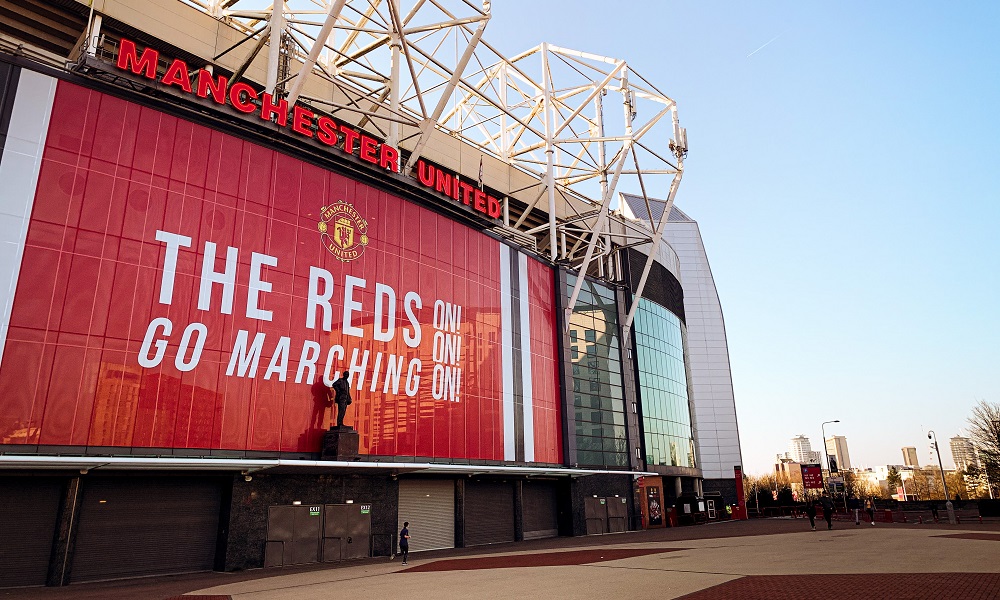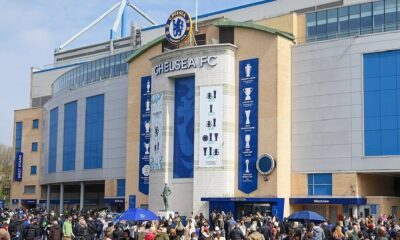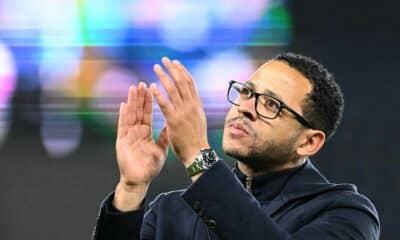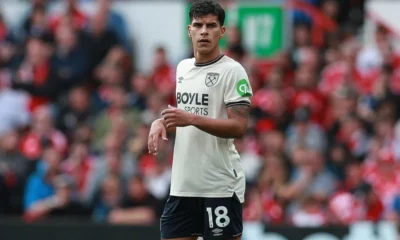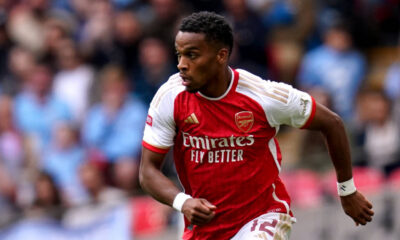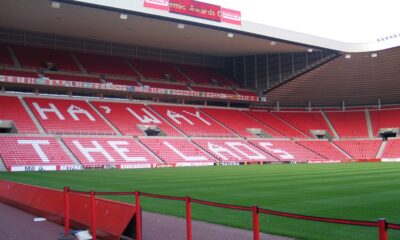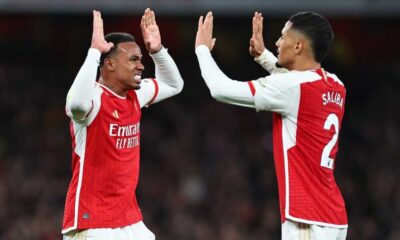Features
Pre-Millennial derbies of Manchester
The first game occurred on November 12, 1881, when Newton Heath, who would eventually become Manchester United, travelled to Manchester City.
The first game between the two juggernauts occurred on November 12, 1881, when Newton Heath, who would eventually become Manchester United, travelled to St. Mark’s (West Gorton), which would later become Manchester City. The Ashton Reporter spoke of the contest as “a delightful game” as Newton Heath won 3-0.
The clubs were simply two of many young teams in the Manchester area at the time; therefore, the match held no particular significance. The first match of the 1890s was described as “a coming together of two local clubs, Ardwick just climbing to the greatest standard in the football world while [Newton Heath] are virtually in the front rank” since both clubs rose in stature over the 1880s.
In the Manchester region, the two teams rose to prominence, and from 1888 to 1893, Newton Heath and Ardwick alternately won the Manchester Cup. Both organisations joined the Football Alliance, a transient foe of the Football League.
Both clubs tried to no avail to get elected to the League during this time ). In 1892, the Football League opened its doors to new members, and the First Division now included Newton Heath, and the Second Division included Ardwick.
In their first Football League encounter, Newton Heath defeated Manchester City 5-2 in a rather sad event for anyone with Manchester City tickets at Hyde Road during the 1894–95 season. The two teams’ first encounter at the top level of English football took place in December 1906, with City winning 3-0 in a First Division game that drew more than £1,000 in gate receipts—a substantial sum at the time.
At this time, City was still reeling from a financial crisis in which the team was proven to have paid players outside the books. As a result, seventeen players—including the majority of the squad that won the 1904 FA Cup—were suspended and prohibited from ever playing for the club again.
Billy Meredith, Jimmy Bannister, Herbert Burgess, and Sandy Turnbull were four players that joined United when their suspensions were over in January 1907, and they helped the team win their first league championship in 1908 as a result. The transfers were generally appreciated for aiding a fellow Manchester team, in contrast to contemporary hostility. Turnbull was the first player to be dismissed in a derby the following year.
The 1970s
In the 1970s, tempers frequently flared among those with United and Manchester City tickets during Manchester derbies. Glyn Pardoe of City was injured in the derby in December 1970 when United’s George Best tackled him, breaking his leg. Due to the severity of the injury, the City defender nearly lost his leg. Francis Lee accused George Best of diving during the thrilling 3-3 draw the season after and made the point to the referee by theatrically falling to the ground. Mike Doyle and Lou Macari were both sent off in the drab, 0-0 game that ended the 1973–74 season’s first derby at Maine Road. When neither player left the pitch, the referee had to send both teams back to the locker rooms until they both agreed to be dismissed.
The infamous Denis Law match
United was aiming to avoid relegation with a win in the rematch, but they also depended on Norwich defeating Birmingham on that day for their result to matter. The matchup took place at Old Trafford on the season’s penultimate day (United still had a road game to play at Stoke). After 80 minutes had passed without a goal,
Francis Lee sent the ball to Denis Law, a former United player facing away from the net. Law successfully backheeled the ball beyond Alex Stepney’s goal. After this one, Law made his final appearance in league football, and he soon announced his retirement. United supporters broke onto the field during the last minutes of play and forced a forfeit.
Even if United had won or drawn, the outcome stood, and other results meant they would still have been demoted. Those with Manchester City tickets were left jubilant.
A year later, United was promoted back to the First Division. The following years of the decade were largely successful for the two teams. Manchester City triumphed in the League Cup in 1976 and finished second in the League the following year, while United advanced to three FA Cup finals in four seasons despite only having one victory in the competition.
The 80s
The two teams drew 2-2 on September 27, 1980, at Old Trafford, ushering in the 1980s. It was the start of an underwhelming league season for United, who fired manager Dave Sexton after the year. Meanwhile, City fired manager Malcolm Allison shortly after, and under his replacement John Bond, the team improved in the League and advanced to the FA Cup Final.
But by 1982–83, any claims that City was a superior team to United had been disproved. United finished 2nd runners-up in the League and won the FA Cup, while City was relegated. The Old Trafford derby on October 23, 1982, concluded in a 2-2 tie, but United won the rematch at Maine Road on March 5, 1983, by a 2-1.
For the 1985–86 campaign, City was reinstated in the First Division, and on September 14, 1985, they played host to United at Maine Road. United extended their league-leading winning streak to eight games with a 3-0 victory in this contest. They went on to win all ten subsequent matches, leading the First Division standings going into the new year, but ultimately came in fourth.
Although City placed 15th in the League this year, they did visit Old Trafford on March 22, 1986, and they managed to keep the visitors to a 2-2 draw, costing them two crucial points as their chances of winning the League began to dwindle.
For City, the 1980s ended on a high note when, just weeks into the 1989–90 season, they partnered with United for the Maine Road derby after winning promotion back to the First Division in 1989. United was defeated by City 5-1, but this was their only victory over United in 13 years.
The final decade of the Millenium
Peter Schmeichel, a goalkeeper who has played for both Manchester United and Manchester City, has a perfect record in derby matches. During his ten games in goal for United against City, they went undefeated, while in his one season at Maine Road, City defeated United at home and earned a point at Old Trafford.
But in the 1990s, United dominated the game and went the entire decade without losing a derby. In the 1990–91 season, the Maine Road match between the two Manchester clubs produced a thrilling 3–3 draw, but the return game at Old Trafford in May saw United win 1-0, and the game’s lone goal came from 17–year–old talent Ryan Giggs, netting in the first senior goal of what would become an illustrious and uncommonly successful career. The 1991–92 Manchester derbies were scoreless draws at Maine Road in the middle of November and a 1–1 draw at Old Trafford at the beginning of April.
After dominating the League for the majority of the season, United finished second after finally collapsing under a schedule that was too full and a lack of goals in the second half.
United won 2-1 at Old Trafford in the first Manchester derby since the Premier League was established for the 1992–93 season. Newly acquired Eric Cantona made his United debut on that occasion. Over the following four seasons, he scored eight goals in Manchester derbies, the first of which came in the March match back at Maine Road, ending in a 1-1 draw. One of the best Manchester derbies was played in 1993–1994 when United overcame a 2-0 behind at Maine Road to win 3-2 with two goals from Eric Cantona, sending those with Manchester City tickets into despondency.
With an ever-growing fan base for the Derbies, Man City tickets are in high demand. Tickets sell out high and fast on official retail sites because of the footballing spectacle these players provide. In that case, authorised retailers might not be your best option. Exploring trusted reseller sites will help you reliably source Manchester City tickets.

